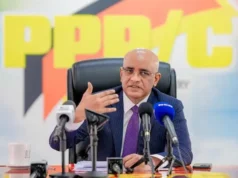With more than 100 countries already taking steps to realize the goal of the Paris Agreement which seeks to bring global temperatures within the range of 2 to 1.5 Degrees Celcius, it is clear that the transition towards cleaner energy is inevitable. It is also clear that companies that are able to invest in climate-friendly ventures and develop a pipeline of renewable projects are more likely to succeed in such an area.
But even as these industry stakeholders begin to embrace this inevitable reality, it should not be interpreted to mean that oil is “dead”. According to analyst and Co-director attached to Americas Marketing Intelligence, stakeholders should see the transition as symbolizing a new era of oil optimization in which companies prioritize strategic jurisdictions with high-quality crude and low breakeven points, while heavily investing in cutting emissions through research and new ventures.
Among the major oil companies, Deakin said in his most recent writings that ExxonMobil’s prioritization of key assets appears to be paying off. On December 11, he recalled that the company had announced its first hydrocarbon discovery in Suriname, building on its position as a leader in South American oil exploration. The discovery was made in Block 52, located 75 miles offshore of Paramaibo in the Guyana-Suriname basin. Exxon had recently farmed-into block 52 by acquiring a 50 percent stake from Malaysia’s Petronas.
Deakin said that the increased success in the Guyana-Suriname basin should come as no surprise since the area has the third-largest undiscovered resources in Latin America, behind only the Campos and Santos basins located in Brazil. The latest US Geological Survey in 2012 estimated that the Guyana-Suriname basin could contain 14 billion barrels of oil, 21 trillion cubic feet of gas, and 574million barrels of natural gas.
But Deakin noted to be significant about ExxonMobil’s prioritization of the assets in Suriname and Guyana is the fact that they have cheaper, cleaner oil thereby allowing oil companies to shed dirtier, costlier assets and focus on these types of jurisdictions. Due to increased investor pressure, COVID-19 losses, and stricter environmental regulations, Deakin was keen to point out that oil majors have become more selective about spending money and more serious about protecting the environment. To build good-will across the world, including among Guyana’s people and politicians, Deakin is of the firm opinion that oil companies should double down on their carbon capture projects and invest heavily in climate-friendly ventures. This he posited will allow them to step into their new roles amidst this accelerating energy transition.













